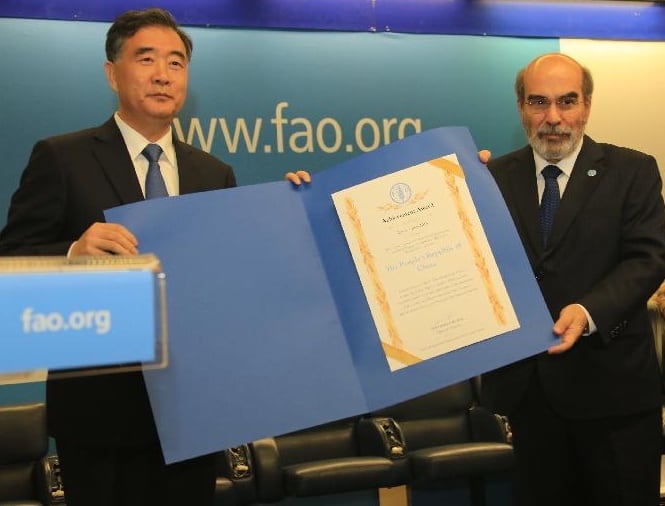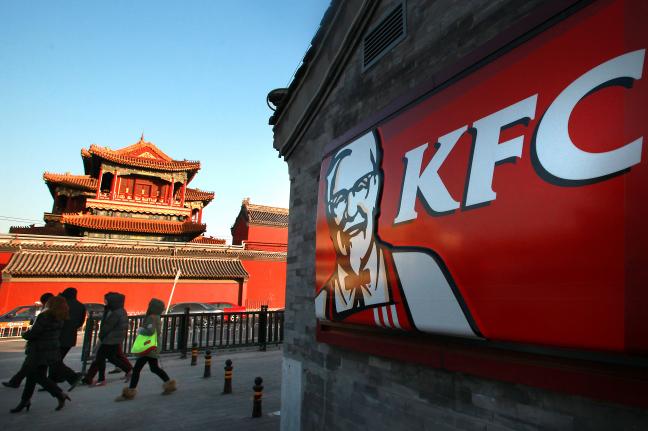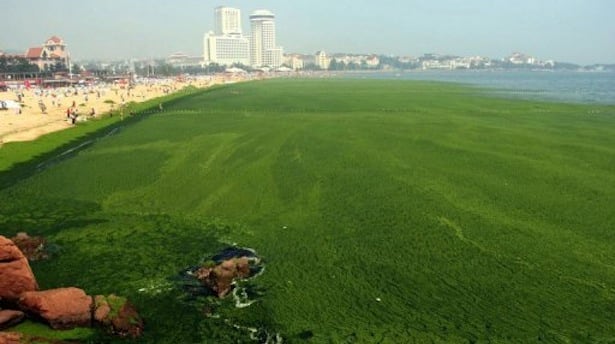China will spend US$50m to help developing countries build sustainable food supply chains, the UN’s Food and Agriculture Organisation announced this weekend in Rome.

The news came after China’s vice-premier Wang Yang urged the governments of other countries to join the fight for food security.
With the world’s biggest population and limited agricultural land, China has made no secret of its concerns over sustainable food supplies and has been attempting to transform its own farming productivity through central policymaking.
This focus on agriculture and food production has seen growth in grain production for 11 consecutive years, with annual output surpassing 600m tons in the past two years, Wang said, adding that the world could eliminate hunger and poverty only if all countries worked together.
China's donation will support the exchange of Chinese agricultural experts with countries in the global South, particularly in low-income food-deficit areas of Central Asia, the Pacific Islands, Africa and Latin America, over five years.
"China has made strides in decreasing hunger and has used its own experience to support other countries in doing the same," FAO Director-General Jose Graziano da Silva said.
"It has become clear that while we have the power to end hunger in our lifetime, we will only succeed if we work together. Southern countries empowering one another by exchanging knowledge and tools is a key part of this.”
Since 1990, China has successfully lifted 138 million of its people out of chronic hunger and has halved the prevalence of hunger.
"China is the leading agricultural producer among developing countries; FAO is the world's top agricultural organisation. We are ready to enhance our cooperation with FAO, which will not only benefit agricultural development and progress toward hunger reduction targets, but also the poor and hungry people of the world," added Wang.
Crackdown nets half-billion dollars worth of smuggled meat
China’s customs department has confiscated almost half a billion dollars worth of frozen meat in a nationwide anti-smuggling campaign.
The campaign is covering 14 provinces and municipalities, including Beijing and Guangdong. So far, 130 suspects allegedly from 21 organised gangs have been arrested, with more than RMB3bn (US$490m) worth of chicken wings and beef captured.
Smuggling frozen meat not only poses food safety risks, but also circumvents taxation, said the administration, adding that the campaign will add other products to the campaign later this year.
KFC takes marketeers to court over alleged eight-leg chickens slander

Restaurant chain KFC has filed a lawsuit against three Chinese companies who had claimed a number of slurs about China’s biggest restaurant operator, including a statement that KFC chickens it uses have eight legs.
The case comes after a wave of convictions involving internet marketeers who have been found to have manipulated online sentiment by posting false information about competitors or deleting critical posts.
One common urban myth about KFC, which operates 4,600 restaurants in China, is that the chickens it uses are genetically modified and have six wings and eight legs.
KFC is demanding RMB1.5m (US$242,000) and an apology from the three companies, which each operated accounts on the WeChat mobile phone app, when the case is heard by Shanghai Xuhui District People’s Court.
KFC China chief executive Qu Cuirong said in a statement that it is hard for companies to protect their brands against rumours because of the difficulties in collecting evidence.
“But the stepped-up efforts by the government in recent years to purify the online environment, as well as some judicial interpretations, have offered us confidence and weapons,” she said.
The authorities redoubled efforts two years ago to clean up what they called “online rumours, negativity and unruliness”.
Critics say the campaign was largely aimed at suppressing criticism of the ruling Communist Party, though many believe a cleanup was long needed.
China to take steps to clean up its polluted water
China has intensified its fight against water pollution by announcing controls through a government-backed prevention programme.
The scheme aims to reduce pollutants, improve drinking water and promote water saving, according to the State Council, which serves as China's cabinet.
The aquatic ecosystem has been severely damaged in many parts of China, threatening public health and economic development.
The plan will set out to ensure that over 70% of the water in seven major river valleys, including the Yangtze and Yellow rivers, will be in good condition by 2020. The same target has also been set for offshore areas.
Moreover, by the end of 2030, more than 75% of the water in the seven major river valleys will be clear and black-odour in urban areas eliminated, officials announced.
Biggest ever ‘green tide’ threatening aquaculture on east coast

A growing algae bloom has been spreading across growing area of China’s east coast, causing increasing concern to the local seafood industry in neighbouring areas.
The so-called green tide had occupied 35,000 square kilometres of waters by the weekend, maritime authorities said, making it the biggest algae bloom ever recorded in China. On May 22, its size was “just” 1,500 square kilometres.
Moving northeast, the bloom now threatens coastal areas of Shandong Province, where the local economy depends heavily on aquaculture.
Though it is not poisonous, the algae can block sunshine and consume large amounts of oxygen, suffocating marine life.
It has become almost a yearly event since 2007, though scientists are still at a loss as to exactly how it occurs, beyond the presence of pollutants, and what threats it poses in the long-term.
"That would probably be an indicator that something is a little bit unbalanced," one resear her told The Guardian.
The algae develops by absorbing nitrogen and phosphorus pollutants in sea water, and temperature changes.
Authorities in one coastal city in Shandong have mobilised sea vessels to help remove the algae, which local businesses will recycle into fertiliser, animal feed and food additives.
